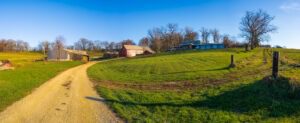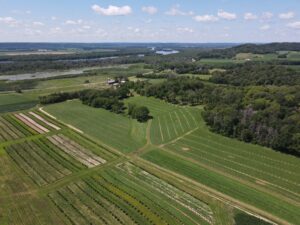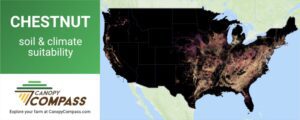FOR IMMEDIATE RELEASE: June 4, 2024
Jacob Grace
Savanna Institute
[email protected]
The Savanna Institute Releases Conservation Courses for Professional Development
Online courses help ag and conservation professionals mentor farmers in adopting agroforestry
Spring Green, WI: The Savanna Institute this month released a new educational resource for ag and conservation professionals looking to build their skills in agroforestry and agroecology so they can better serve their clients. The Conservation Course Collection has seven professional development courses that review the latest climate science, agroforestry for water quality, soil health fundamentals, and more that guide farmers in adopting regenerative agriculture practices.
“There is a high demand for agroforestry technical assistance and not enough people trained to provide support,” says Kate Wersan, Senior Director of Impact at the Savanna Institute. “This collection of courses allows us to train-up USDA staff and other professionals on the latest agroecological practices so they can increase the assistance available to farmers and landowners.”
The online courses are available at a low-cost on LearnAgroforestry.com, an online learning hub with flexible, self-paced online courses that can supplement on-farm agroforestry education. Developed by the Savanna Institute and its partners, Learn Agroforestry courses connect people to relevant research and resources in a recommended learning sequence. Users can enroll in all seven courses in the Conservation Course bundle for $175 or take individual courses for $40 each.
“To grow the number of farmers practicing agroforestry for the climate, for water quality, and for soil health, we need to develop our workforce with the skills needed to successfully manage perennial farms,” explained Wersan. In addition to developing online professional development courses, the Savanna Institute pairs apprentices each season with mentor farms for on-farm learning to build the regenerative agriculture workforce.
Mini-courses on forest farming, riparian buffers, and silvopasture are also available for continuing education credit for additional fees. The Conservation Course Collection was developed with the support of North Central Region SARE program and can be taken at LearnAgroforestry.com.
###
The Savanna Institute is a 501(c)(3) nonprofit organization that works with farmers and scientists to lay the groundwork for widespread agroforestry adoption in the Midwest US. Inspired by the native savanna ecosystems that once covered much of this region, the Savanna Institute conducts research, education, and outreach to support the growth of diverse, perennial agroecosystems.
The material is based upon work supported by the National Institute of Food and Agriculture, U.S. Department of Agriculture, under agreement number 2020-38640-31522 through the North Central Region SARE program under project number ENC20-191. USDA is an equal-opportunity employer and service provider. Any opinions, findings, conclusions, or recommendations expressed in this publication are those of the author(s) and do not necessarily reflect the view of the U.S. Department of Agriculture.
More Press Releases

Stewarding a Vision at Hillside Pastures in Spring Green, Wisconsin
When Daniel and Linda Marquardt purchased their first farm in Spring Green, Wisconsin in the mid 1990s, the 40-acres of land was not in good shape. “It was heavily eroded – pretty much destroyed,” said Daniel.

Eligible Farmers Invited to Apply for Participation in Agroforestry Program
Eligible producers with crop and grazing operations are invited to apply to the Expanding Agroforestry Incentive Payment Program beginning January 31 through March 14, 2025. If selected for participation, producers will receive direct incentive payments to install new agroforestry plantings, thus increasing their income potential while enhancing the environmental outcomes of their operations.

What tree crops are suitable for your land? Canopy Compass can tell you
Advice about what trees to plant is one of the most common requests we get at the Savanna Institute and at Canopy Farm Management, two organizations working to scale up tree-based agriculture in the Midwest.

